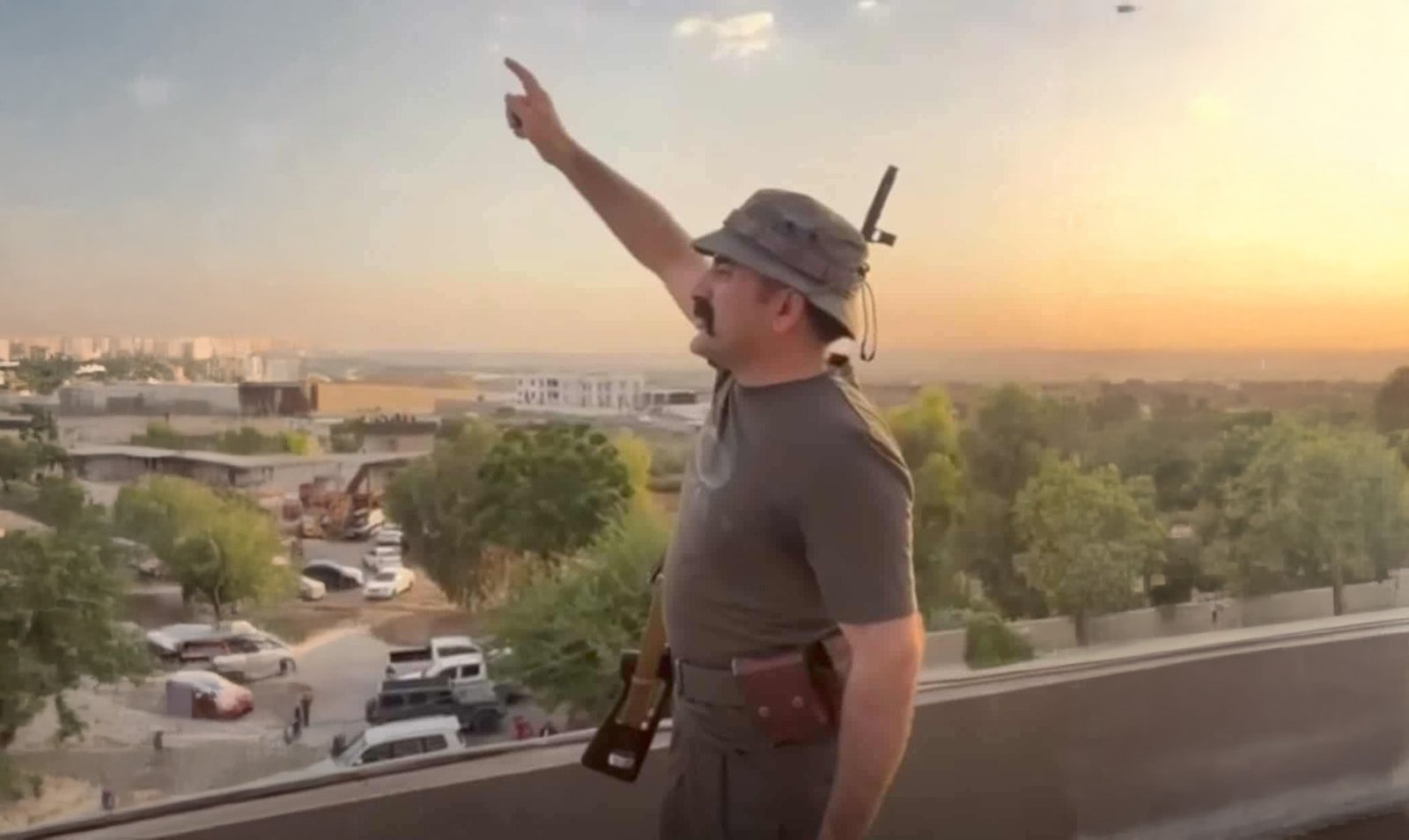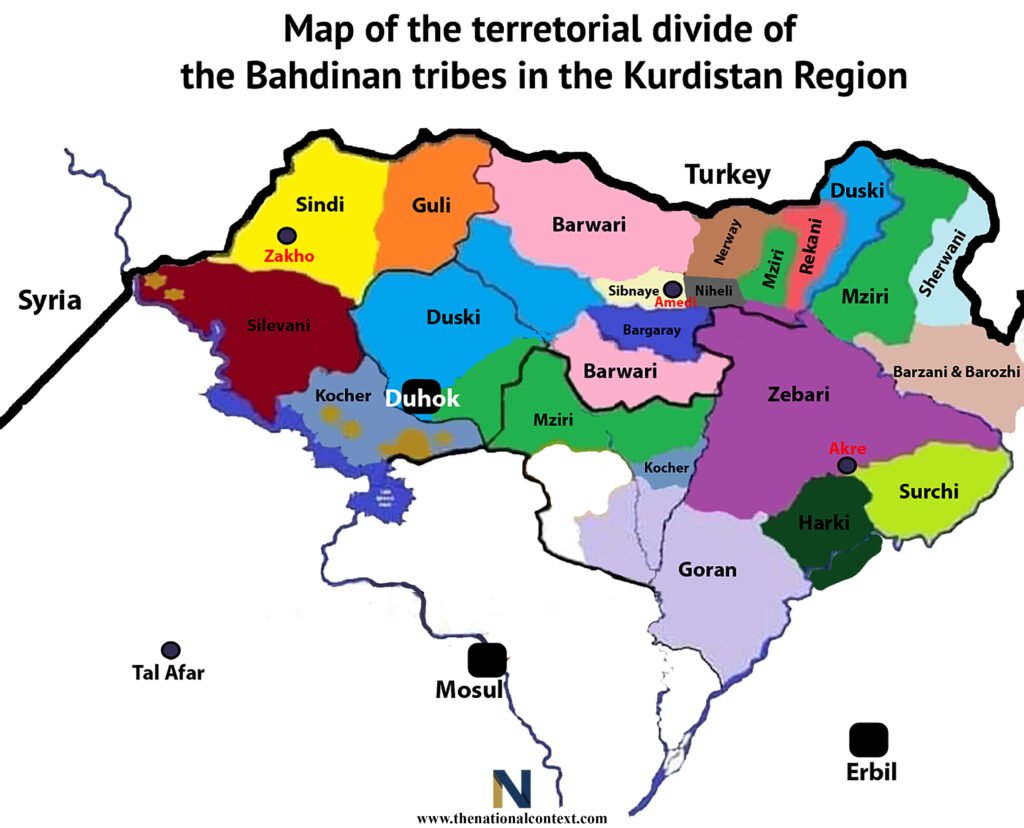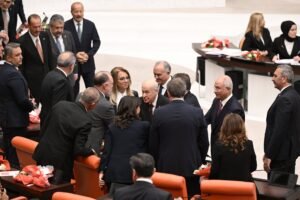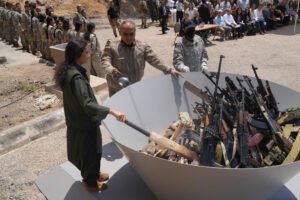Written by
Fierce Clashes Erupt Between Harki Tribe and KDP Security Forces in Western Erbil

Fierce clashes have broken out between a faction of the Harki tribe and KDP security forces in Erbil’s western Khabat district, after an attempt by security forces to arrest Khurshid Harki, one of the tribe’s chieftains. This escalation follows earlier tribal clashes last week in the same area over a disputed stretch of land through which the Kurdistan Region’s main oil pipeline passes.
Context: The violence intensified after Khurshid Harki refused to surrender to KDP forces. At least one Harki fighter and one KDP security officer have been killed, and several military vehicles—including at least two Humvees—have been destroyed by Harki fighters. The unrest stems from a long-running land dispute between a faction of the Harki tribe and the Gorran tribe over territory crossed by the KRG’s oil pipeline.
Although preliminary talks had taken place, tensions flared when Bashar Mushir Agha, head of the Gorran tribe, was seen publicly with Prime Minister Masrour Barzani during the clashes—a gesture that angered many within the Harki tribe, one of the largest in the Kurdistan Region. A ceasefire was reached two days ago, but Harki supporters now claim the KDP violated it by attempting once again to arrest Khurshid Harki.
In a widely circulated video from the fighting, Khurshid Agha is seen holding a rifle and calling on his fighters to hold their ground until reinforcements arrive from Zakho and Duhok. Khurshid is both a businessman and a military figure with long-standing KDP ties. The Harki tribe itself is fragmented, with multiple figures claiming leadership. These divisions have been further deepened by political affiliations.
The most prominent Harki chief is Jawhar Muhadin Agha, a staunch KDP enemy that is aligned with the PUK. His base of support spans Duhok, Erbil, and Mosul, though he primarily operates out of Mosul, as he is unable to return to Erbil or Duhok. In a recent statement, he voiced support for Khurshid Harki and declared that the Harkis “will not accept being treated unfairly.” He commands a large following and is a multimillionaire with considerable resources.
Analysis: While the clashes have temporarily subsided, the situation remains tense. The Harkis have dug trenches and say they will not withdraw unless KDP forces pull out of the area.
In a notable development, all KDP-affiliated media outlets—including Rudaw—have ceased coverage of the incident since last night and removed related posts from their social media accounts.
Meanwhile, villagers in the Khabat district have blocked the main highway used by oil tankers transporting crude from Erbil to Duhok and onward to Turkey. Dozens of tankers are reportedly stranded.
Yesterday, a brother of Khurshid Harki told NRT TV that if KDP forces do not withdraw, the tribe may escalate further—possibly by targeting the Lanaz and KAR refineries, both owned by the Barzani family and located near Harki villages. Notably, the Lanaz refinery is personally owned by Mansour Barzani, son of KDP president Masoud Barzani and commander of the party’s special forces.
At the heart of the current standoff is the unresolved land dispute between the Harki and Gorran tribes. Many Harkis, not just those fighting, view the KDP as siding with the Gorran tribe. In the absence of a functioning and impartial legal system, few trust the courts to deliver a fair resolution. Khurshid Harki reportedly holds legal documents proving ownership of the contested land. However, when he brought his company’s equipment to the area, Gorran tribe members allegedly attacked it—claiming the land as theirs. The incident triggered the renewed clashes.

The Harkis argue that instead of holding both parties accountable or bringing the matter to court, the KDP shielded Bashar Mushir Agha—head of the Gorran tribe—who was publicly seen with Masrour Barzani. Bashar is said to co-own several businesses with Masrour, including a potato chip factory. While the legal status of the land remains unclear, the dispute has dragged on for years without resolution due to the lack of a neutral adjudicator.
The judiciary in the Kurdistan Region, never fully independent, has only worsened over time. The courts are now widely seen as too partisan and compromised to be taken seriously, even in relatively straightforward cases. In some instances, disputes involving judges themselves have been resolved through tribal mediation rather than legal proceedings—a reflection of the judiciary’s deepening dysfunction and corruption.
Furthermore, geography adds another layer of complexity. The Khabat district sits between Erbil and Mosul, with Mosul being a key stronghold of the Harki tribe. This gives the Harki faction a logistical advantage in the current standoff.
Finally, this crisis is unfolding against the backdrop of a broader economic breakdown. Public employees, including members of the security forces, have gone unpaid for nearly 70 days. The Harki tribe has historically played a key role within the KDP Peshmerga, where tribal affiliations remain deeply entrenched in the security structure.
This makes the current standoff particularly sensitive for the KDP. Harki fighters are motivated by tribal loyalty and a code of honor, while the KDP forces deployed to confront them—driven largely by economic necessity—have little morale or incentive to fight over a land dispute.
There are unconfirmed reports that Mansour Barzani may have met with Harki representatives to de-escalate the situation, though these claims remain unverified and have circulated mainly on social media. However, more credibly, a representative of Nechirvan Barzani—Kurdistan Region’s president and the KDP’s deputy president—is now reportedly meeting with Khurshid Harki to seek a resolution through dialogue.
It remains unclear what the outcome of this ongoing meeting will be, but the KDP faces a delicate balancing act: they must defuse the crisis without further bloodshed to prevent the situation from spiraling, yet making too many concessions could project weakness and embolden other tribal factions.









